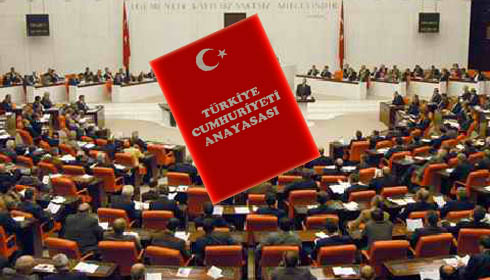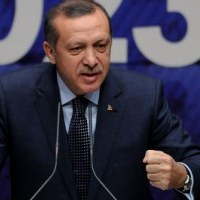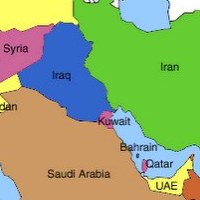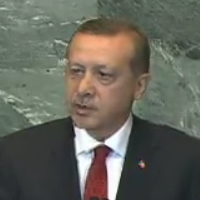![]()
Mon, Oct 10, 2011 | Turkey Analyst, vol. 4 no. 19 | By Gareth H. Jenkins
Turkey’s New Constitution: a Last Chance to Solve the Kurdish Issue?
This article was first published in the Turkey Analyst (www.turkeyanalyst.org), a biweekly publication of the Central Asia-Caucasus Institute & Silk Road Studies Program Joint Center. © Central Asia-Caucasus Institute & Silk Road Studies Program Joint Center, 2011.
On October 1, 2011, 25 deputies from the pro-Kurdish Peace and Democracy Party (BDP) and five pro-Kurdish independents were formally sworn in as members of the Turkish parliament, abandoning a three month-old boycott of the assembly in protest at the continued imprisonment of another five BDP candidates who had won seats in the June 12, 2011, general election. The ruling Justice and Development Party (AKP) had already announced that its priority over the months ahead will be the drafting of a new constitution. The decision by the thirty pro-Kurdish deputies to take up their seats in parliament has raised hopes of a sustained dialogue with the AKP and the possible inclusion in the new constitution of sufficient concessions to solve Turkey’s Kurdish problem and persuade the Kurdistan Workers’ Party (PKK) to lay down its arms. However, although the presence of the pro-Kurdish deputies in Ankara does create the opportunity for dialogue and a short-term reduction in tensions, there currently appears little prospect of the AKP agreeing to the Kurdish nationalists’ minimum demands.
Background
There has long been a broad consensus that Turkey’s current constitution needs to be replaced. Promulgated in 1982 during a period of military rule, the constitution prioritized political stability and the preservation of an authoritarian state over the protection of the rights and freedoms of its citizens. Over the last 20 years, more than half of the provisions of 1982 constitution have been altered in some way. But the patchwork of revisions and amendments still overlies an essentially authoritarian structure based on the concept of a highly centralized, mono-lingual and mono-ethnic Turkish state. The 1982 constitution also includes a number of controversial — and sometimes seemingly paradoxical — provisions on the role of religion in public life. These include a theoretical commitment to the principle of secularism, the provision of generous state support for Sunni mosques and clergy (to the exclusion of other faiths and denominations) and the compulsory inculcation of Sunni Islam at every level of the education system.
The AKP’s first attempts to rewrite the constitution occurred in late 2007, shortly after the party had been reelected to a second term in office, and appear to have been primarily motivated by a desire to circumvent the draconian manner in which some of the provisions on secularism had been interpreted by hard-line Kemalists; most notably the ban which prevented women who wore headscarves from attending university. At the time, the higher echelons of the judiciary were still dominated by Kemalists, who responded by trying to outlaw the AKP. The attempt failed and resulted in the AKP shifting its attention to the judiciary.
On September 12, 2010, the AKP put a package of 26 constitutional amendments to a referendum. Many were genuinely liberalizing, such as the removal of barriers to positive gender discrimination and the creation of the legal framework for the office of ombudsman. But the package also included a radical overhaul of the upper echelons of the judiciary, leading skeptics to claim that the genuinely liberalizing measures were merely sugarcoating for an attempt by the AKP to neutralize its ideological opponents. In the event, the skeptics were proved right. Within weeks of the package being approved, the AKP pushed through the changes to the upper echelons of the judiciary, filling the higher courts with its own appointees and effectively removing the final obstacle to its absolute control over the apparatus of the state. No attempt has been made to implement the genuinely liberalizing measures in the package.
The BDP had called for a boycott of the constitutional referendum on the grounds that the proposed amendments made no attempt to address Kurdish nationalist demands; such as the explicit recognition of a distinct Kurdish identity, greater Kurdish language rights and a devolution of power, including a measure of self-government for the predominantly Kurdish southeast of the country. Through early fall 2010 Prime Minister Tayyip Erdoğan sought to reduce tensions by promising that the AKP would discuss the BDP’s concerns during the formulation of a new constitution, which he vowed would be the AKP’s primary task after the June 12, 2011 general election.
However, by late 2010, it had become clear that Erdoğan’s main priority for a new constitution was the replacement of the current parliamentary system with a presidential one; after which he planned to have himself elected to the presidency for two successive five-year terms. By early summer 2011, some Kemalists were even speculating that Erdoğan and the BDP might strike a deal: with Erdoğan trading concessions on Kurdish rights for support for his presidential ambitions. The chances of any such deal materializing were always very low and appear to have disappeared completely since the AKP’s massive election victory on June 12, 2011.
Implications
The prospects of a rapprochement between the AKP and the BDP received a further setback in the immediate aftermath of the elections when the BDP’s Hatip Dicle, who had successfully stood as an independent candidate, was stripped of his seat which — in contravention of Turkish law — was awarded to the AKP rather than another independent. The courts also refused to release five successful BDP candidates who had run for office from prison, where they were being held on remand on charges of belonging to a PKK umbrella organization called the Democratic Confederation of Kurdistan (KCK). In Turkey’s highly politicized judicial system, nobody doubted that the decision of the courts had at least the tacit approval of the AKP.
On July 14, 2011, the Democratic Society Congress (DTK), an umbrella organization dominated by the BDP, responded by proclaiming what it termed the “democratic autonomy” of southeast Turkey. In theory, this included a measure of self-government and the recognition of Kurdish as an official language and a medium of instruction in schools. In practice, daily life in southeast Turkey has continued much as before. However, the proclamation of democratic autonomy did raise the bar in terms of the BDP’s minimum demands for a new constitution. Now that the announcement has been made, it is very difficult for the BDP to settle for anything else.
It is debatable whether any Turkish government would be able to meet the BDP’s demands, especially given the prevalence of aggressive Turkish nationalist sentiment; and even more so given the recent disturbing rise in anti-Kurdish racism in the country. Yet the AKP currently appears to be moving away even from the concept of concessions on the Kurdish issue.
Apparently buoyed by his huge election victory, Erdoğan’s policy pronouncements on a broad range of issues have become characterized by increasingly belligerent rhetoric and threats to use force. Not only is there no indication of a desire to make concessions, but Erdoğan appears genuinely convinced that he can impose his own solution on the Kurdish problem through a combination of military might and force of personality.
Significantly, on October 4, 2011, just three days after the BDP had abandoned its boycott of parliament, the Turkish police detained another 130 suspects as part of the KCK investigation. Many were BDP members. Since the KCK investigation was first launched in April 2009, nearly 7,750 suspects have been detained, of whom 4,000 have been formally arrested. A total of 4,200 suspects have been detained and 1,600 formally arrested in the last six months alone. There are currently over 3,000 suspects being held or remaining in prison pending the completion of the trial, which appears likely to take at least several more years. Although the KCK exists and is controlled by the PKK, the investigation is deeply flawed. Many of the suspects are known opponents of the violent methods used by the PKK, reinforcing the impression amongst Kurdish nationalists that the investigation is being used to try to suppress and silence not the PKK but Kurdish nationalism as a whole.
Conclusions
In a country in which judicial processes have become increasingly politicized and where even the rights enshrined in the 1982 constitution are frequently ignored, there are serious doubts about whether a new, more liberal, constitution would be able to arrest what appears to be growing authoritarianism. Nevertheless, a more liberal theoretical framework which redefined the Turkey as a pluralistic, multi-ethnic state would undoubtedly go some way towards addressing the grievances of the country’s Kurdish minority; although any provisions would inevitably have to be implemented in order to be fully effective.
On October 10, 2011, the BDP and the AKP held a preliminary meeting at which they agreed to discuss the contents of the planned new constitution without any preconditions. However, there currently appears little prospect of them agreeing on a final text. The BDP’s proclamation of democratic autonomy has set the bar unrealistically high. The AKP’s past record suggests that it is more concerned with strengthening its own grip on power than the creation of a genuinely democratic society in which its opponents enjoy the same rights and liberties as its members and supporters. In this context, the belligerent attitude adopted by the AKP since the June 12, 2011 general election appears particularly disquieting. The party’s recent rhetoric suggests that, after winning nearly half of the popular vote, it no longer believes that it has to engage in meaningful consultation with, much less make any concessions to, anyone else.
On September 30, 2011, Erdoğan declared that he expected the new constituion to be ready by mid-2012 at the latest. The time limit was immediately condemned by opposition parties who maintained that it did not allow enough time for a thorough discussion about the new constitution’s contents. But, in setting a deadline for the constitution, Erdoğan may also have unwittingly set the AKP a deadline by which to solve the Kurdish issue.
Although few Kurdish nationalists believe that the AKP is committed to addressing their grievances, the repeated promises of a new constitution have meant that they have had to wait to see what it contains before passing a final judgment. Once the new constitution has been promulgated, Kurdish nationalists will have nothing on which to focus their fading hopes. If the new constitution does not meet their minimum demands, the result will not — as the AKP currently appears to believe — be a grudging acceptance but a hardening of attitudes and an increase in Kurdish demands; to the point where the pressure not just for autonomy but for full independence may acquire an irreversible momentum.
Gareth Jenkins, a Nonresident Senior Fellow with the CACI & SRSP Joint Center, is an Istanbul-based writer and specialist of Turkish Affairs.



 RSS
RSS












Turkey’s New Constitution: a Last Chance to Solve the Kurdish Issue? | Middle East, Israel, Arab Wor http://t.co/ga1oTMLa
Turkey’s New Constitution: a Last Chance to Solve the Kurdish Issue? | Middle East, Israel, Arab Wor http://t.co/ga1oTMLa